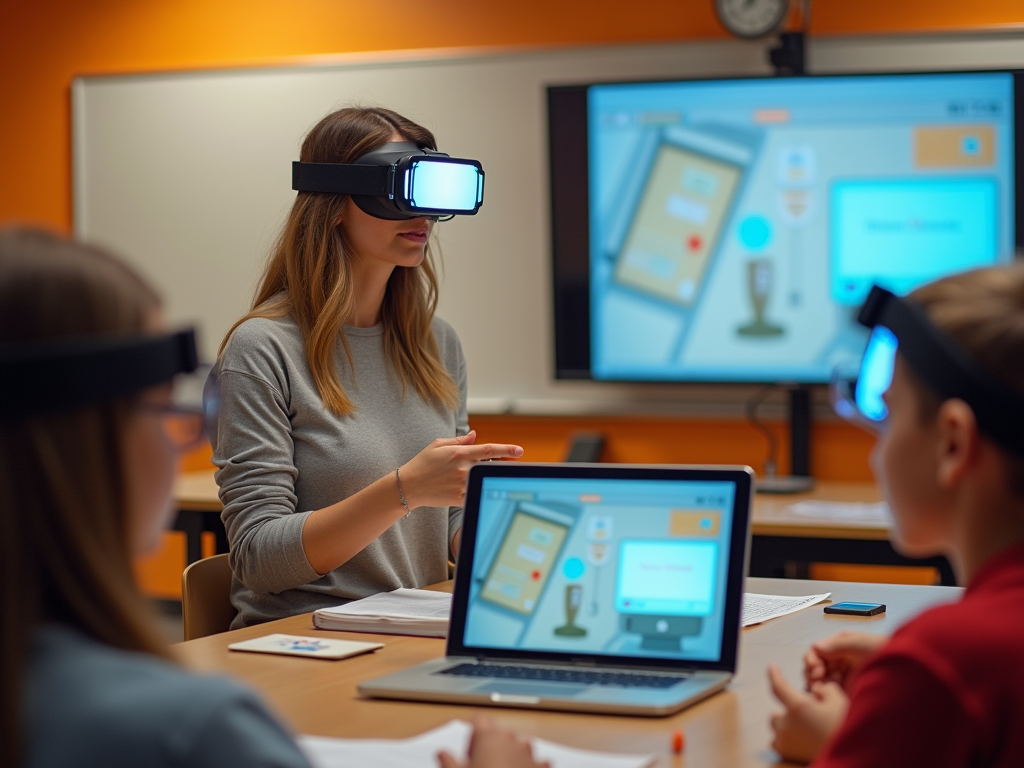The Growth of the Education Technology Sector in Dubai
BusinessDubai’s education technology (EdTech) sector has rapidly transformed the landscape of learning, driven by innovation, government incentives, and increasing demand for digital solutions. This article delves into the key factors propelling this growth, the major players in the market, and the future possibilities for EdTech in the region. Through a blend of traditional education and cutting-edge technology, Dubai is setting a precedent for global educational practices. With a vibrant ecosystem of startups and established companies, the EdTech scene in Dubai resonates with potential and ambition. Understanding this growth trajectory is crucial for stakeholders, including students, educators, and investors who seek to engage with the sector.
Key Drivers of EdTech Growth in Dubai

The factors contributing to the remarkable growth of the EdTech sector in Dubai are multifaceted. Primarily, they can be categorized into political support, technological advancements, and demographic shifts. Each of these drivers plays a pivotal role in the evolution of educational methods within the Emirate. Specific elements contributing to this growth include:
- Government Initiatives: The Dubai government has been proactive in promoting digital learning through initiatives like the Dubai Learning Initiative, which aims to integrate technology in schools.
- Investment Funding: There has been a surge in investments from venture capitalists and educational institutions that recognize the value of EdTech solutions.
- Increased Digital Literacy: With a tech-savvy population, students and educators are more inclined to adopt digital tools.
- Global Partnerships: Collaborations with international EdTech firms have led to the introduction of advanced learning platforms.
- COVID-19 Impact: The pandemic necessitated a swift transition to remote learning, accelerating the adoption of EdTech solutions.
Major Players in Dubai’s EdTech Market

The EdTech landscape in Dubai is enriched by a variety of local and international companies driving innovation. These organizations are focused on enhancing educational outcomes and improving accessibility through technology. Notable players include:
- TalabatLearn: A food delivery service branching into EdTech, offering learning resources for children.
- RoboGarden: Specializes in teaching coding and programming through hands-on activities suited for young learners.
- EdSights: A platform that utilizes data analytics to provide personalized learning experiences.
- Khan Academy: An internationally recognized platform that provides free educational resources accessible to students in Dubai.
- Classera: A comprehensive Learning Management System (LMS) tailored to the Middle Eastern educational context.
Looking ahead, the future of the EdTech sector in Dubai appears promising, with several trends emerging that suggest sustained growth and innovation. Key trends shaping the future include:
- Artificial Intelligence: Leveraging AI to create personalized learning experiences that adapt to individual student needs.
- Gamification: Introducing game-based learning to make education more engaging and interactive.
- Augmented and Virtual Reality: Creating immersive learning environments that enhance understanding through simulation.
- Blended Learning Models: Combining traditional classroom teaching with online learning resources for a more flexible education structure.
- Global Education Exchanges: Expanding opportunities for cross-border learning programs through partnerships.
Challenges Facing the EdTech Sector
Despite its impressive growth, the EdTech sector in Dubai does not come without challenges. Stakeholders must navigate these hurdles to ensure continued development. Key challenges include:
- Regulatory Hurdles: Navigating educational regulations can be complex for EdTech startups.
- Market Saturation: With an influx of players, competition has intensified, making it harder for new entrants.
- Diverse Learning Needs: Addressing the varied educational requirements of a multicultural population can be daunting.
- Funding Complexity: Securing investment can be challenging for startups without a proven track record.
- Infrastructure Limitations: While many schools are tech-enabled, others struggle with inadequate infrastructure.
Conclusion
In conclusion, the EdTech sector in Dubai is flourishing due to a combination of government support, technological advancements, and a pressing need for innovative educational solutions. As the city continues to embrace digital transformation, we can expect exciting developments and strategies that will reformulate traditional educational practices. By addressing challenges and leveraging opportunities, stakeholders can play a significant role in shaping the future of education in Dubai, ultimately benefiting both educators and learners alike.
Frequently Asked Questions
What is the primary goal of the EdTech sector in Dubai?
The primary goal of the EdTech sector in Dubai is to innovate and enhance educational practices through technology, making learning more accessible and engaging for students.
How is the Dubai government promoting EdTech?
The Dubai government promotes EdTech through various initiatives aiming to integrate technology into classrooms and by providing funding and resources to develop innovative educational solutions.
What are some challenges facing EdTech startups in Dubai?
Challenges include navigating regulatory frameworks, intense market competition, addressing diverse learning needs, securing funding, and dealing with infrastructure limitations.
How has COVID-19 impacted the EdTech sector in Dubai?
COVID-19 acted as a catalyst for digital transformation in education, leading to a rapid increase in the adoption of EdTech tools as schools shifted to remote learning.
What future trends can we expect in Dubai’s EdTech sector?
Future trends include the integration of artificial intelligence for personalized learning, the use of gamification in education, and the development of augmented and virtual reality tools to create immersive learning experiences.
